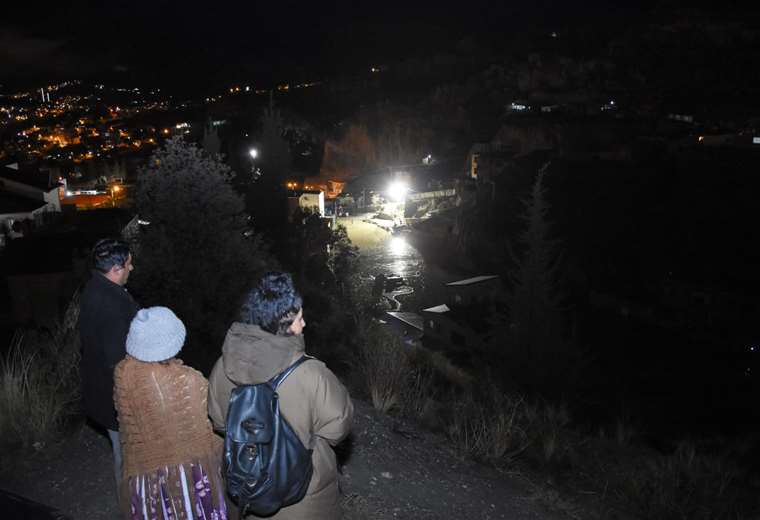The Economic Commission for Latin America and the Caribbean (ECLAC) presented this Friday -November 22- a challenging panorama for young people in the region, in which demographic changes, the advancement of technology and new market needs, will force the establishment of new labor policies if we do not want an increase in unemployment in this part of the population.
In conjunction with ‘Ayuda en Acción’, an NGO specialized in generating opportunities and development in Latin America, analysts pointed out that Colombia and its neighboring countries face a context where traditional jobs in agriculture and manufacturing are being reduced, as young people prepare to work in the service sector and are increasingly less interested in the countryside and industries.
More information: ‘Be consistent with the country’, the academy’s position for increasing the minimum
Due to this, as they explain, the expansion of service activitiescioyes, such as commerce, transportation, tourism, health or culture, among others, is consolidating as a risk that, in the medium term, the lack of specific public policies to face the challenges of the service sector will lead to an increase in job insecurity and youth unemployment.
Matías Figueroa, director of the Europe Aid in Action Program, maintained that the governments of this part of the world still have time to generate processes that help carry out this transition, which would also be impacted by aspects such as low birth rates, the environment and the aging of the population.
Young people working.
Courtesy
“Without specific public policies to mitigate these risks, unemployment and job instability rates could grow, especially given the impact of climate change and other migration processes that Yontenhance labor competition in urban areas,” Figueroa explained during his presentation.
Structural problems
Also present at this event were the author of the report and Official of the Social Development Division of ECLAC, Mariana Huepe, and the Consultant in the same Division, Andrés Espejo, who highlighted there are structural problems in the Latin American labor market, for which There is still no solution, even though it has been there for years.
Read here: Fitch’s decision would allow Colombia to ‘buy time’ to make fiscal adjustments
Some of these scourges lie in inequalities and what they described as a “disadvantageous situation” for young people, in which in addition to the fact that their efforts to find employment must be greater, when they access one, generally the salaries are lower and they do not have all the social security required by law.
“According to the data in the report, in 2022, more than 20% of employed people between 15 and 29 years old receive labor income less than the poverty line and more than 37% receive wages less than the national minimum. This has a clear effect on the incidence of poverty, with children and youth being the most affected,” they noted.

unhappy young people
iStock
To give an example of this situation, the researchers said that 31% of people between 15 and 19 years old were in poverty, and 8.5% were in extreme poverty. These percentages decrease to 22% and 5.7%, respectively, in the population between 20 and 24 years old, and 21.5% and 5.6%, respectively, in the population between 25 and 29 years old.
“No country has managed to universalize the completion of secondary school: the rates of the adolescent population with completed secondary school vary from less than 50% to 90% in some countries. Inequalities intensify in higher education and among Afro-descendant and indigenous people,” the report says.
On the other hand, the report’s conclusions call for not overlooking that labor productivity in the region has stagnated, and a negative trajectory of economic growth is projected, which in the future can translate into fewer opportunities to create formal, quality jobs for young people.
For reading: Colombia consolidates growth in the airline sector with record data: these are the figures
“Latin America is the most unequal region in the world, and disparities are manifested, among other factors, in access to quality education and decent work opportunities, which perpetuates cycles of poverty and exclusion. Added to this is the fact that the technological revolution is transforming employment in Latin America, where youth, more than the adult population, is at risk of being displaced by automation,” they highlighted.
look forward
Although the current outlook is not the best, ECLAC recommended not dwelling on unfavorable data and, on the contrary, thinking about how to generate processes that help strengthen these weaknesses, starting with knowing what type of jobs the market is demanding and how to prepare young people to access them.
That said, they warn that in 16 countries in the region, more than 1.2 million young people would leave the agricultural sector, nearly 640 thousand would leave the manufacturing sector and more than 1.8 million would enter the services sector, a sector that, in the region, is characterized by low levels of labor productivity.

Latin America and the Caribbean
iStock
“In this same scenario, 70% of youth employed in 2030 It would be concentrated in public services and companies (34.6%), commerce (30.2%) and basic services (6.4%). While a smaller percentage would be located in manufacturing (13.3%), agriculture (8.2%) and construction (7.4%),” they explained.
Based on this, they suggest working on the formalization of youth employment, reducing informality through programs that offer social protection and better working conditions. In addition, they recommend promoting quality jobs in strategic sectors such as technology, sustainable energy and public services, areas that provide stability and opportunities for professional development.
Another priority for them is to close gender gaps in the youth labor market, promoting equity and guaranteeing the inclusion of women in quality jobs and also underlining the need to strengthen labor information systems, providing reliable data on trends. of the market. All this without neglecting fronts such as investment in education and technical training, a crucial point in caring for the future of young people in Latin America.

















